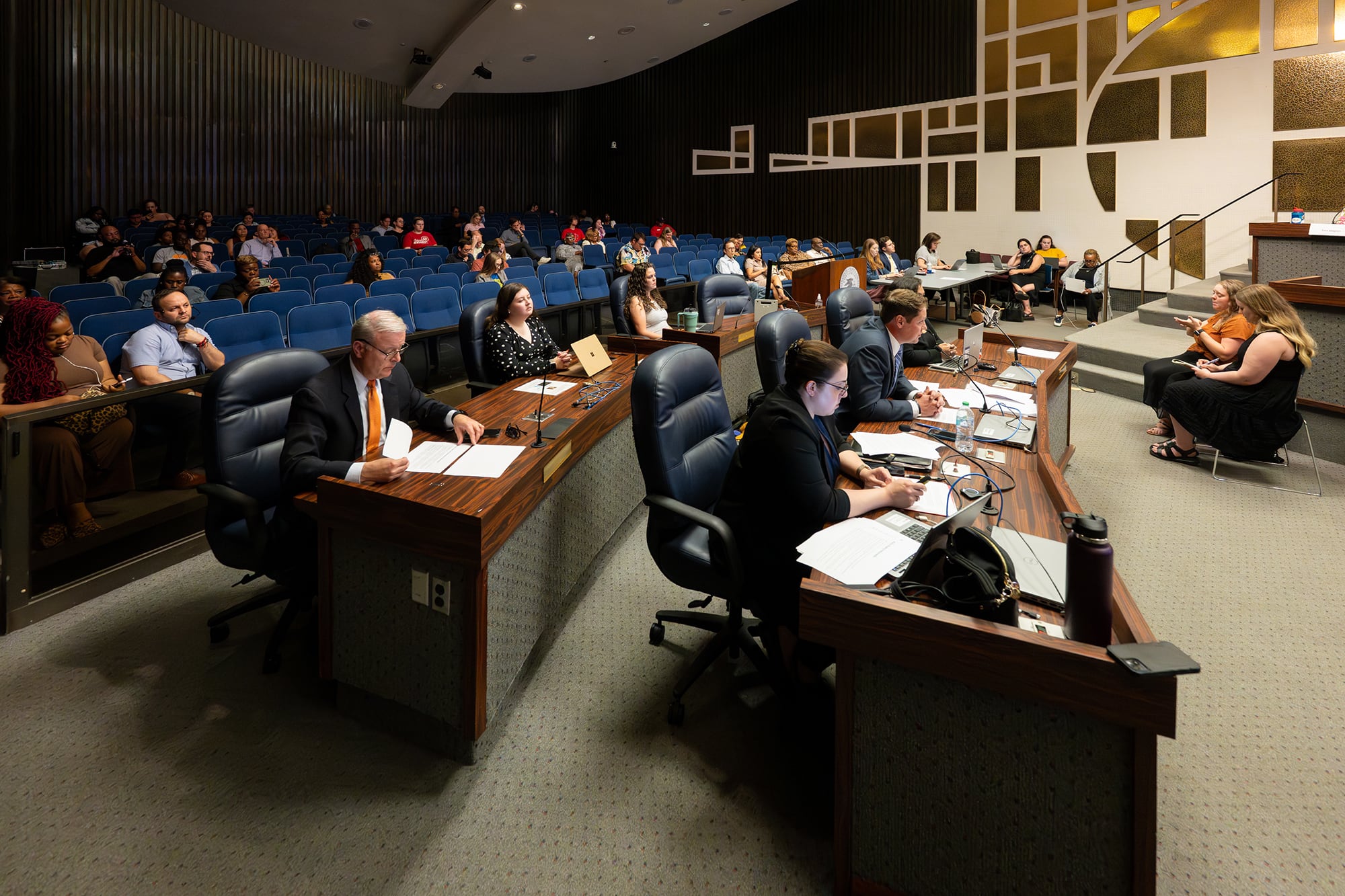Sign up for Chalkbeat Indiana’s free daily newsletter to keep up with Indianapolis Public Schools, Marion County’s township districts, and statewide education news.
In the future, Indianapolis’ traditional public and charter schools could answer to a single authority, like a mayor or an elected board. They could have a universal accountability system and an enrollment structure that ensures district and charter schools enroll students in certain subgroups — like those with disabilities — at a similar rate.
These were some of the takeaways from what current and former officials in Denver and Washington, D.C. public schools shared with the Indianapolis Local Education Alliance at its fifth meeting on Wednesday.
The presentations came from the perspective of two urban systems that feature a hybrid of traditional and charter schools and could offer both potential solutions and cautionary tales for the alliance as it crafts recommendations on the future of IPS.
In some ways, Indianapolis shares some features of these cities, like a centralized enrollment system — Enroll Indy — that nearly all schools within IPS enrollment borders use. But in other ways, the cities are different: Both Denver and Washington, D.C. have only one entity that authorizes new charter schools. Existing Indianapolis charter schools are overseen by one of three authorizers.
Mayor Joe Hogsett, chair of the ILEA, said the alliance invited the guests to present not with the intention of Indianapolis emulating either city’s model, but to help the ILEA understand “that there are multiple options, and each have their strengths as well as their own shortcomings.”
Universal accountability, enrollment in Denver Public Schools
In Denver, charter and district schools agreed in 2010 to adhere to similar standards while receiving similar levels of funding, said Alyssa Whitehead-Bust, a former top official at Denver Public Schools who is now a partner at the Attuned Education Partners consulting firm.
That means, for example, that charters had to serve a proportional share of some of the hardest-to-serve and most expensive students, including those with disabilities.
Enrollment in Denver Public Schools is now declining. But when it was growing, a “Strategic Regional Analysis” helped guide the district on when and where to open schools. Schools that meet needs outlined in the annual analysis can operate in a district-run facility and are part of a shared transportation system with district schools, she said.
Those that don’t meet needs identified in the analysis can choose to opt in to yellow bus service, she said.
Denver schools are graded on a universal school performance framework. The district had its own framework for many years. But the school board got rid of it in 2020, and now uses the state’s school rating system.
A student-based budgeting formula distributes money across both school types based on certain criteria, with additional funding given for English language learners or students in poverty, for example.
In Washington, D.C., mayor has oversight
In Washington, D.C., a single charter school board appointed by the mayor authorizes schools. The mayor also hires the school chancellor responsible for traditional public schools.
In the early days of the charter sector, charters had the right of first refusal to vacant district buildings, said Paul Kihn, deputy D.C. mayor of education. Now that the city no longer has any available buildings, charter schools receive additional money for facilities.
Kihn said traditional schools are meant to serve as neighborhood school options while charter schools offer more innovative educational models.
But even without an elected school board, Kihn said engaging with the public still matters. And, he said, getting two sectors to think as one ecosystem has taken decades.
“It’s important to put in the time, but it doesn’t happen, I don’t think, by magic,” he said. “And it also doesn’t happen with the wave of a particular policy wand. You’ve got to have these constituent elements working together.”
What else can Indianapolis learn from Denver and D.C.?
ILEA member Tina Ahlgren noted that in contrast to Washington D.C., residents in IPS are just a fraction of the city-county residents who elect a mayor. Having mayoral control of the school system could mean that some voters elect a mayor based on the success of IPS and charter schools, while other voters in the county’s other school districts do not.
In public comment, Bryan Duarte, a taxpayer and education professor, urged the ILEA to maintain a fully elected school board. He pointed to Chicago Public Schools, which is transitioning from an appointed to an elected school board.
Khai Vuong, an Indianapolis educator, said Indianapolis could learn lessons from Denver and D.C.
“We learned a lot about how we don’t need to point fingers and start conflict,” Vuong said. “But we have a clear case study of how IPS, innovation and charter schools can have a clear example of what a unified network looks like.”
The alliance must submit recommendations to state lawmakers by the end of the year. The next ILEA meeting is scheduled for 6 p.m. Nov. 19 at a location to be determined.
This story has been updated to include more recent information on Denver Public Schools.
Amelia Pak-Harvey covers Indianapolis and Lawrence Township schools for Chalkbeat Indiana. Contact Amelia at apak-harvey@chalkbeat.org.






